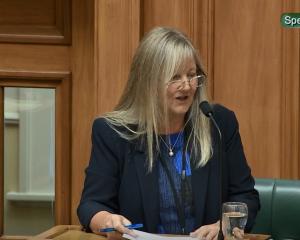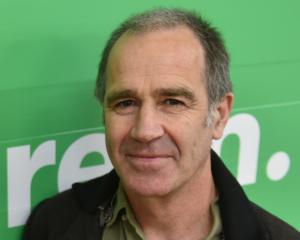Superannuation is set to be a political football again during next year's election campaign, with the possibility of a compulsory version of KiwiSaver becoming increasingly likely.
Finance Minister Bill English yesterday announced the formation of another savings working group, asked to consider how New Zealand could improve its national savings.
"Improving the level of national savings is the next step in the Government's programme for tilting the economy towards savings and exports."
The working group had a wide brief.
The only exclusions were New Zealand Superannuation, which the Government would not change, and broad taxation of capital gains or land, which the Government had previously said it would not introduce, he said.
Otherwise, nothing was ruled out.
The working group would not focus solely on options for retirement savings - it would canvass a range of options for improving New Zealand's overall savings performance, including government savings, Mr English said.
Forsyth Barr KiwiSaver specialist Damian Foster said it appeared the Government was reacting to earlier announcements by Labour finance spokesman David Cunliffe.
Mr Cunliffe proposed bringing back the incentives to join and remain in KiwiSaver that were thrown out by the National-led Government.
"It is good to see both Mr English and Mr Cunliffe want to address savings, although their approaches will be different.
"Compulsory superannuation is definitely on the agenda but we will have to wait until January to find out if they will bring it in."
Mr Foster expected a softening up campaign between now and January to get the public to accept changes to superannuation saving were needed.
Prime Minister John Key had said recently he was keen to encourage public debate.
As the public would bear the full brunt of any changes, the public debate would give Mr Key a chance to see how far the Government could push on savings, Mr Foster said.
Mr English said the facts surrounding New Zealand's savings and investment were stark.
They included:
• Running a current account deficit every year since 1973, implying that investment in New Zealand had continuously exceeded national savings.
• Net debt to the world - across government, households and business - jumping from about $100 billion in 2000 to almost $180 billion currently and forecast to be almost $250 billion by 2014.
"So we have a big task to turn around this economy and rebalance it towards saving and growth," he said.
Mr Foster said he was pleased to see tax breaks on savings would be discussed by the group, which would encourage employees to save more of their income.
About half the working population was in KiwiSaver, so New Zealand still had a long way to go as a nation to improve its savings rates.
"We hope the working group will consider a measured rise in contribution rates over the coming years.
"Australia is looking at going up to 12% by 2019.
"As savings amounts increase, it will become even more important for New Zealanders to be comfortable with how these savings are invested.
"For a number of members, KiwiSaver represents their first sizeable investment experience," he said.












